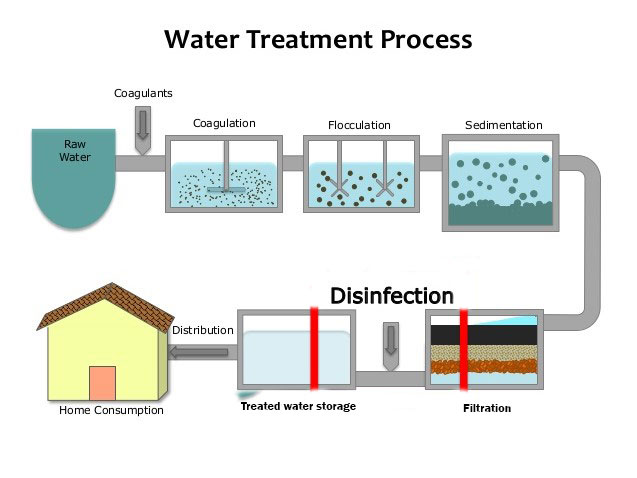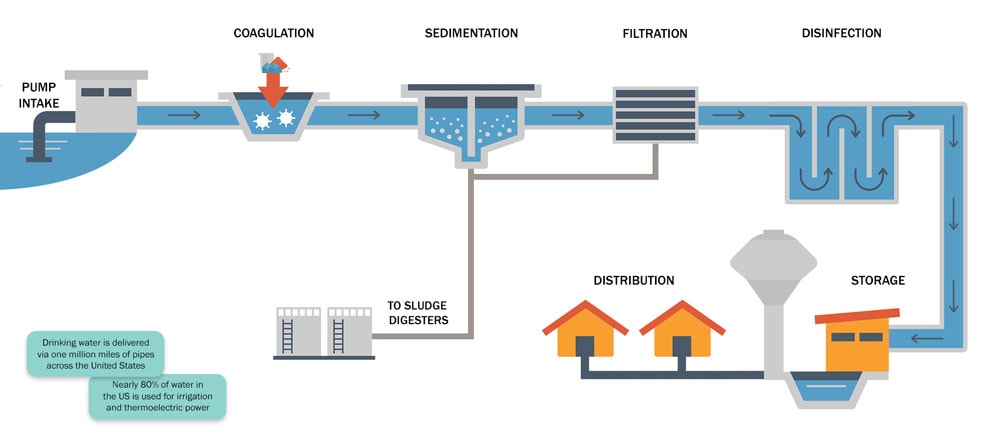Water Technology Startups vs Traditional Water Solutions: How They Compare
Checking Out Water Technology Startups: Exactly How They Change Sustainable Solutions
Water Technology start-ups are becoming crucial players in the mission for sustainable options to worldwide water problems. These firms utilize cutting-edge technologies to improve water efficiency and monitoring. Their contributions resolve pushing obstacles such as deficiency and contamination. However, regardless of their capacity, they face numerous barriers that can influence their success. Recognizing these dynamics clarifies the future of water sustainability and the duty these start-ups might play in shaping it.
The Significance of Water Technology in Today's World
As worldwide water shortage heightens, the relevance of water Technology comes to be significantly evident. Water Technology plays a crucial function in dealing with the obstacles posed by diminishing freshwater sources and enhancing demand. It encompasses a wide series of innovations, consisting of advanced filtering systems, wastewater treatment modern technologies, and smart irrigation remedies. These advancements not only enhance the effectiveness of water usage yet also promote sustainable methods throughout various industries, including farming, industry, and metropolitan development.
The significance of water Technology expands beyond source management. It cultivates resilience versus environment change influences, such as droughts and floodings, by giving adaptive options for water conservation and administration. In addition, it supports public health and wellness by ensuring accessibility to tidy and risk-free drinking water. As the world encounters expanding water-related obstacles, the assimilation of cutting-edge water innovations is essential for fostering sustainable development and safeguarding water accessibility for future generations.
Ingenious Solutions From Water Tech Startups
While standard techniques to water administration have served their purpose, a brand-new wave of water technology startups is changing the sector with ingenious services (Water Technology Startups). These companies utilize sophisticated technologies to address pushing water problems, such as shortage, contamination, and ineffective circulation. Lots of start-ups use expert system and artificial intelligence to enhance water usage and predict need, resulting in even more lasting techniques
Furthermore, several companies concentrate on creating advanced purification systems that get rid of contaminants and make water safe for consumption. Others explore decentralized water treatment technologies, enabling communities to handle their water sources a lot more successfully. In addition, some startups are introducing clever watering services that decrease water waste in farming, promoting ecological preservation.
Instance Studies: Effective Water Technology Startups
Numerous water Technology start-ups have actually emerged as leaders in addressing global water difficulties through ingenious approaches. One remarkable instance is Xylem, which focuses on water analytics and smart framework to optimize water use and lower waste. Their services have actually been applied in numerous towns, demonstrating considerable renovations in water monitoring effectiveness.
One more successful startup, Zero Mass Water, has actually created solar-powered hydropanels that remove water vapor from the air, offering sustainable alcohol consumption water in dry areas. Water Technology Startups. This Technology has actually been released in a number of countries, making sure neighborhoods have access to tidy water
AquaVenture Holdings operates a varied portfolio of water-as-a-service services, attending to water deficiency via desalination and wastewater therapy. Their jobs have shown important in areas encountering extreme water lacks, showcasing the capacity of innovative water modern technologies to develop long lasting, positive impacts. These study highlight the transformative possibility of startups in the water Technology industry.
The Role of Smart Technology in Water Monitoring
Smart Technology plays an important function in modern-day water administration by leveraging IoT applications to maximize resource use. Information analytics boosts efficiency by giving actionable insights, while remote tracking options allow real-time oversight of water systems. Together, these innovations change just how water is handled, promoting sustainability and operational efficiency.
IoT Applications in Water
As water shortage and management challenges heighten globally, the assimilation of Internet of Things (IoT) applications has actually arised as a pivotal remedy in maximizing water sources. IoT Technology facilitates real-time tracking and evaluation of water supply, making it possible for a lot more effective usage and monitoring. Sensors released in different water infrastructures can track high quality, flow prices, and leakage, giving useful information to stakeholders. This data empowers utilities and consumers to make informed decisions, decreasing waste and enhancing conservation efforts. In addition, smart watering systems utilize IoT to enhance water shipment for agriculture, making sure that crops obtain the right quantity of water at the right time. Generally, IoT applications are changing typical water administration practices, promoting sustainability and strength in water resource systems.
Data Analytics for Performance
Taking advantage of information analytics is necessary for enhancing effectiveness in water administration. Water Technology start-ups are increasingly utilizing sophisticated analytics to maximize source allocation and decrease waste. By examining data from various sources, these startups can determine patterns and fads that educate better decision-making. Anticipating analytics can forecast water need, enabling utilities to adjust supply as necessary, therefore lessening scarcities and excess. In addition, real-time data processing enables the immediate discovery of leakages and inadequacies within circulation systems, substantially reducing functional prices. Data-driven insights encourage stakeholders to apply targeted preservation techniques, fostering lasting practices. Fundamentally, integrating information analytics into water administration not just improves procedures but also my latest blog post promotes long-term sustainability in water source use.
Remote Monitoring Solutions
While traditional water monitoring systems often struggle with inadequacies, remote monitoring services are transforming just how water sources are taken care of. These innovative modern technologies enable real-time data collection and evaluation, enabling stakeholders to check water quality, circulation prices, and usage patterns from afar. Making use of sensors and IoT tools, remote tracking offers instant understandings that promote aggressive decision-making. This shift not only enhances operational effectiveness but also advertises sustainability by decreasing water waste and maximizing source allowance. Furthermore, remote surveillance systems can identify possible issues prior to they intensify, thus reducing the danger of contamination or infrastructure failure. As water Technology start-ups remain to create these solutions, the market is positioned for considerable developments in sustainable water monitoring techniques.
Difficulties Dealing With Water Technology Startups
Water Technology startups come across considerable obstacles that can prevent their development and success. Trick concerns consist of safeguarding adequate financing, steering via intricate governing atmospheres, and contending in a congested market. These obstacles require strategic preparation and technology to get over.
Financing and Investment Obstacles
Although development in water Technology holds immense potential for addressing international obstacles, startups in this sector commonly face considerable financing and financial investment hurdles. Lots of capitalists continue to be careful, viewing the water industry as high-risk due to its intricate regulative landscape and long development timelines. Additionally, start-ups usually struggle to show instant earnings, which can discourage potential backers. Standard venture resources might neglect water modern technology, favoring fields with quicker returns, such as technology or durable goods. Additionally, safeguarding gives and government financing can be competitive and time-consuming, additional complicating monetary stability. Water Technology Startups. Consequently, lots of innovative water Technology start-ups locate themselves in a ragged edge, requiring imaginative funding approaches to navigate these monetary obstacles and achieve their goals
Regulative Conformity Issues
Steering governing conformity is a considerable difficulty for start-ups in the water Technology field, as they must come to grips with a myriad of regional, nationwide, and global laws. These regulations typically include water high quality criteria, ecological defense regulations, and safety and security methods, which can differ extensively across jurisdictions. Startups may discover it challenging to navigate this complex landscape, specifically when scaling operations or going into new markets. The expenses connected with compliance can be substantial, drawing away sources away from development and product development. In addition, hold-ups in acquiring needed licenses or qualifications can prevent development and market entrance. A robust understanding of governing structures is crucial for these start-ups to assure sustainable procedures and prevent potential lawful consequences.
Market Competition Dynamics
As water Technology startups emerge in an affordable landscape, they deal with numerous challenges that can hinder their development and technology. Established firms commonly control the marketplace, leveraging sources and experience to maintain their positions. Startups go fight with limited funding, my response which limits r & d capabilities, making it difficult to compete on Technology and rates. Furthermore, the swiftly progressing nature of water innovations needs constant adjustment, further straining start-up resources. Regulative hurdles can make complex market entry, as conformity with environmental criteria is essential yet expensive. Finally, drawing in competent talent in a particular niche area provides another obstacle, as larger firms might provide more enticing employment plans. Subsequently, these aspects create a complex atmosphere for water Technology startups intending to be successful.

The Future of Water Technology and Sustainability

The future of water Technology will likely concentrate on incorporating expert system and data analytics to optimize water distribution and use patterns. By taking advantage of real-time data, firms can forecast lacks and manage sources better. Moreover, lasting practices will certainly end up being a keystone of the market, urging circular economies where water is recycled and treated. Inevitably, the continued development of water Technology will be crucial in creating durable frameworks efficient in meeting the difficulties positioned by climate modification and populace development while promoting ecological stewardship.
Frequently Asked Concerns
What Are the Trick Metrics for Examining Water Technology Startups?
Secret metrics for reviewing water Technology start-ups consist of market potential, scalability, client acquisition expenses, profits growth, modern technology development, governing conformity, environmental impact, competitive benefit, and group experience, all vital for establishing long-term practicality and success.
Exactly How Can People Assistance Water Technology Innovations?
Individuals can support water Technology innovations by purchasing startups, advocating for policy modifications, taking part in neighborhood efforts, sharing expertise concerning lasting techniques, and advertising recognition of water concerns via social media and neighborhood events.
What Are Usual Financing Resources for Water Technology Startups?
Typical funding sources for water tech start-ups consist of endeavor resources, government gives, crowdfunding systems, angel capitalists, and company collaborations. These monetary opportunities assist assist in advancement and advancement in lasting water monitoring innovations.

Which Industries Advantage The Majority Of From Water Technology Advancements?
Industries such as agriculture, power, production, and community solutions benefit considerably from water Technology innovations. These developments enhance water efficiency, reduce expenses, and promote lasting practices, eventually contributing to ecological conservation and source management.
Exist Any Governing Obstacles Particular to Water Technology?
Yes, water Technology encounters regulative obstacles, including conformity with ecological requirements, allowing processes, and varying regional regulations. These complexities can prevent technology and slow the application of brand-new innovations in the water monitoring sector.
Water Technology startups are arising as crucial gamers in the pursuit for lasting remedies to global water concerns. As worldwide water shortage magnifies, the importance of water Technology comes to be progressively evident. Others discover decentralized water therapy modern technologies, permitting areas to manage their water resources a lot more efficiently. Another successful start-up, No Mass Water, has developed solar-powered hydropanels that extract water vapor from the air, offering lasting drinking water in dry areas. Their tasks have verified important in regions dealing with extreme water scarcities, showcasing the possibility of cutting-edge water modern technologies to create long lasting, positive effects.